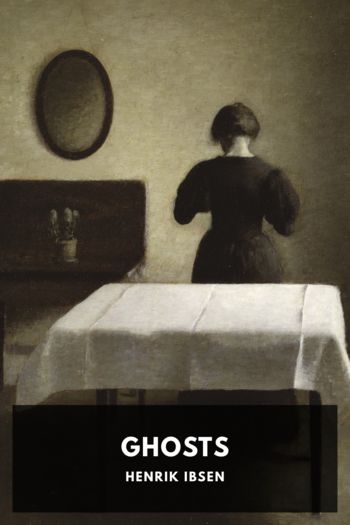Murderous, David Hickson [most read book in the world .TXT] 📗

- Author: David Hickson
Book online «Murderous, David Hickson [most read book in the world .TXT] 📗». Author David Hickson
“It was an act of conservation,” said Fehrson. “It was criminal what that cretin was doing. Keeping such a beautiful antique exposed to the elements. Criminal or downright stupid.”
Or downright clever, I thought. No doubt the cretin in question had discovered that his prime customer had a window through which he could see his stall and had carefully positioned the clock for maximum temptation.
“It was a small price to pay to save it,” said Fehrson, and he gazed with admiration at the clock where it stood between the other seven clocks mounted on that wall. Then he brought his attention back to me and the admiration faded. “So we are back to square one,” said Fehrson. “Khanyi has filled me in. You wasted all that time talking about what kind of beer his father drank? You did not even get to the bottom of what happened with poor old Fourie.”
“We learnt a few useful things,” I said. The Nun’s chair was the kind of chair people are strapped into before being connected to electrodes. I realised when I sat in it why nuns spend so much time on their knees.
“Such as?” said Khanyi, who had been waiting patiently for her opportunity to divert the blame.
“His relationship with his brother.”
“His brother?” said Fehrson incredulously. “The priest? What on earth does their relationship have to do with it?”
“Q cares more for his brother than he does for himself.”
“Now you’re the big polygraph machine?” said Khanyi. “Before we went in, you told me it’s not possible to tell when someone’s lying.”
“You cannot tell when someone’s lying based on body language or visual cues,” I said. “But when someone is telling the truth, they can tell the story forwards, backwards or any way up. When someone has built a fabrication, they struggle to do that.”
“In what way did he struggle?”
“He was confused about his brother’s departure.”
“Confused?” said Fehrson.
“He said the brother left in the morning, then later said he left that night.”
Fehrson gazed at me. “That’s it? Seems an easy mistake, somewhat subtle.”
“And he’s been medicated,” agreed Khanyi. “No wonder he is confused.”
“And this confusion,” said Fehrson, “tells us what?”
“He is lying about when his brother went away,” I said.
“Do we care when his brother went away?”
“I think we do. Because it could mean that the wrong man is in jail.”
Fehrson studied me with displeasure.
“Could mean?” he said. “That’s what your new interrogation techniques have revealed? Could?”
“The police captain is right. They have the wrong man locked up. Q was nowhere near that church. But he’ll take the rap to protect his brother.”
“Ah, so you think his brother did it?”
“Q thinks his brother did it. That is why he is lying about when his brother left. He is convinced his brother went into that church and killed all those people. Rather than wait for us to figure it out, he will take the blame for it himself. His brother means that much to him.”
“That’s preposterous,” said Fehrson. “What about his DNA?”
“I suggest we call Khanyi’s policeman. Ask whether that DNA could belong to the brother.”
“He’s not my policeman,” said Khanyi, and her face darkened a little. “I will call the captain – but he’s not mine. Why must you men always ascribe ownership?”
Fehrson watched me drip onto his antique furniture for a moment.
“We also have a plausible explanation for why Dirk’s fingerprint could be on the magazine,” I said.
“Ah!” Fehrson brightened a little. “Let’s hear it then.”
“He grabbed at an AK-47 that Van Rensburg handled that night.”
“Grabbed at it?”
“There was a fight between Van Rensburg and Fourie,” said Khanyi.
“We already knew that.”
“It means the gun Hendrik shot that night, or at least the magazine from that gun, was used in the church.”
“That is such an interesting detail,” said Fehrson. “Do you have any more of these gems?”
I said nothing. Fehrson sniffed.
“I’m not sure this whole charade was worth the effort,” he said. “I was hoping for more. The burden of trying to stop something horrific from happening again has fallen to us. And you’ve come back with vague stories of missing brothers, absurd sacrifices, and fascinating details of things we already knew.” He looked from Khanyi to me and settled on me as the more deserving of blame.
“Take your ridiculous assumptions to Khanyisile’s policeman,” he suggested and sniffed. “He seems a good sort. Sensible, clear-headed.”
Khanyisile opened her mouth, but then closed it. Fehrson looked past me to the Georgian long-case grandfather clock, and his look softened.
“Let’s not take up any more of Father’s time,” suggested Khanyi after a long pause.
“Of course not,” I said.
I tried not to make too much noise shifting the torture instrument I had been sitting in back against the wall and kept low so I didn’t block Fehrson’s view of his new purchase on my way out.
I met with Andile in his office at police headquarters. His office was a desk among a dozen others in a room with open windows because the prohibition on smoking indoors wasn’t a rule that Andile’s colleagues took very seriously. An icy wind swept into the office and grabbed at any sheets of paper not weighed down with ashtrays. Andile found a chair for me – a broken chair that had lost its wheels and was leaking stuffing where holes had been burnt into the fabric.
“Fifty percent,” he said. “That’s how much DNA siblings share.”
“So the DNA in the church could have been the brother’s?”
“It could.”
We lit a couple of cigarettes and I ran through our conversation with Q, covered the fight that had broken out between Hendrik van Rensburg and Dirk Fourie, and explained why I thought that Q’s brother was the one aspect of Q’s story that rang false.
“Left him with Van Rensburg?” said Andile.
“That’s what he said. They left him with Van Rensburg.”
“I’ve been looking into that business of the security guard,” said Andile. “The





Comments (0)